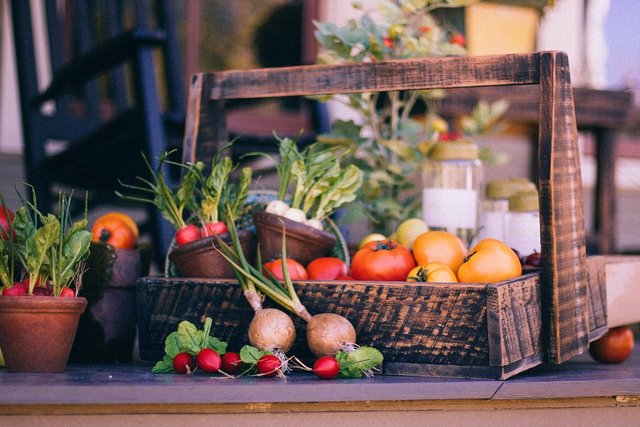5 Ways to Be Carb Smart
Carbohydrates always seem to get a bum rap as a go-to nutrient. While all carbs are not created equal, I am a huge defender of "smart carbs". What you might not know is that our bodies prefer carbohydrates as the number one source of energy. We don't store much of it in our bodies (that's the job of fat), and so we must replenish it regularly for optimal energy balance.
It's time to start thinking about carbs in a whole new way: not "good" and "bad" choices, but as "smart" ones. Here are my top 5 ways to do that.
1. Focus on Fruits and Vegetables. Produce is nature's primary carbohydrate source, which gives us a big hint on good health. These are perfect carbs, since they are not only nutrient rich, but high in fiber and water. The combination of fiber and water fill you up with few calories. Choose a variety of colors when selecting fruits or vegetables for optimal nutrient intake. Most vegetables (except peas and corn) allow nearly unlimited consumption with few calories. Can't get them fresh? Think frozen or canned - but avoid sauces and heavy syrups.
2. Introduce Legumes. Dried beans, peas, lentils, are just some of your choices for legumes - which are both fiber rich carbohydrates, and a good source of protein. Nutrient dense, it's easy to maintain portion control, since modest servings (1/2 - 1 cup) are very satisfying, with the one-two nutritional punch of fiber and protein. Don't have time to cook the dried versions? Using canned beans of all varieties is fine, but try draining the beans in a strainer and rinse with water to avoid extra salt.
3. Choose Whole Grains. Whole grains mean fiber rich carbs, packing a powerful nutritional punch, and lots of fiber. Don't just think 100% whole wheat, but bran, quinoa, brown rice, and couscous to name a few. Save calories by choosing "thin sliced" breads and rolls, and mini-pitas. Be a label reader, and don't be fooled by a bread's "dark"color which might only mean added coloring; look for 100% whole grains. When it comes to whole grain breads, rice, and pasta, you'll get a lot more flavor, and increased satisfaction with smaller portions (thanks to the fiber rich content!), when compared to the refined "white" versions.
4. Limit Processed and Refined Carbohydrates. Here's where carbs get a bad name. A processed or refined carbohydrate is usually combined with other sugars, salt, and fats to create a nutritional nightmare.Think potato chips, fries, cakes, cookies, and candy. "White" products like bread, rice, and pasta are also major sources of refined carbohydrates. While the food police won't come and arrest you for indulging (with portion control) now and then, a steady diet of these products can wreak havoc on your blood sugar levels (never a good thing), and pack on the pounds.
5. Avoid Liquid Calories. Most of us don't think of liquids as a major source of carbs.. From sodas, to juice drinks, to 100% juice, to sports drinks - these are all loaded with refined sugars you'll want to avoid. And don't be fooled by drinks make with "natural" sweeteners" like honey, molasses, or brown sugar. They still fall in the category of refined sugars, and should be avoided. Watch out for smoothies, as many contain sugary fruit mixes. Stick with a homemade version with fresh fruit, and low or non-fat yogurt for a smart-carb drink. Water or seltzer should be your go-to choice. Use a low-calorie sweetener if you choose, or add a slice of fresh fruit, or splash of juice for extra flavor.

Thanks for using eSteem!
Your post has been voted as a part of eSteem encouragement program. Keep up the good work! Install Android, iOS Mobile app or Windows, Mac, Linux Surfer app, if you haven't already!
Learn more: https://esteem.app
Join our discord: https://discord.gg/8eHupPq